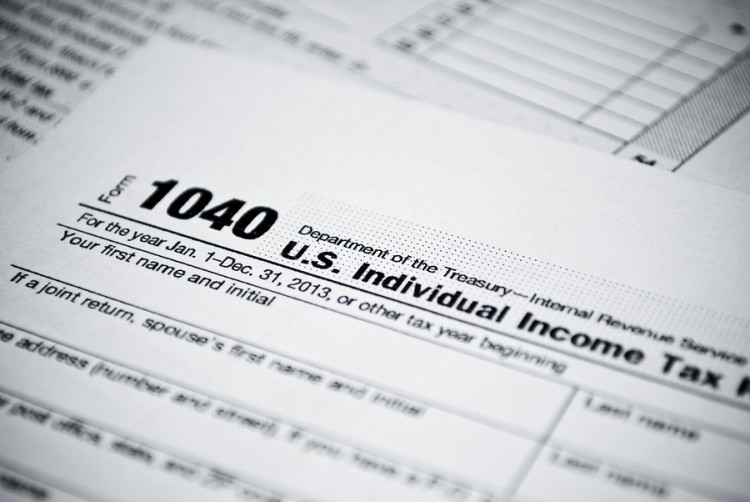Republicans Slam Report That Tax Plan May Hit Middle Incomes

(Bloomberg) —Republican lawmakers leveled harsh criticism at a Washington policy group study that said some middle-income taxpayers would ultimately see a tax increase under a framework for legislation that they and President Donald Trump proposed this week.
That study found that over several years, changes proposed by the GOP would result in tax increases for almost 30 percent of individuals with incomes between $50,000 and $150,000. It also said that more than half the benefits provided by the plan’s tax cuts would go to the top 1 percent of taxpayers.
The tax framework, which was released Wednesday, didn’t include several details about its proposals. So the study by the Urban-Brookings Tax Policy Center used some elements from a 2016 House Republican tax plan to fill in gaps.
Senate Finance Chairman Orrin Hatch said the Tax Policy Center was trying to “invent numbers” and “reverse-engineer a completed tax plan from what’s in the framework.” The Utah Republican and others have described the plan that emerged this week as a broad set of goals, not a detailed plan.
“This so-called study is misleading, unfounded and biased,” said House Ways and Means Chairman Kevin Brady of Texas.
The report came one day after White House economic adviser Gary Cohn said he couldn’t guarantee that every middle-class family would get a tax cut under the plan. “You could find me someone in the country that their taxes may not go down,” Cohn told reporters Thursday at a White House press briefing.
More Than One
The tax center’s analysis suggests it eventually could be many people. That’s in part because of the framework’s call to end personal and dependent exemptions valued at $1.6 trillion over a decade, according to the report. The exemption would be replaced with an expanded child credit that isn’t inflation-indexed. That means the number of taxpayers with a tax increase would rise over time.
Asked about the White House’s pledge that the rate cuts in its plan would benefit the middle class, Eric Toder, co-director of the TPC, said: “The short answer is, we don’t agree with them.” Those facing the biggest tax increases could be upper-middle-income and high-income professionals, according to Toder.
The framework is a starting point for Congress’s tax-writing committees to begin crafting legislation. Much remains undecided, including the amount by which Republicans plan to increase the child tax credit, which would mitigate the financial hit to some middle-class families.
Likewise, while the framework calls for replacing the existing seven tax rates with just three or four, it doesn’t provide the income thresholds at which those different rates would apply. So the policy group’s analysis used brackets that were specified in a House Republican tax blueprint from last year.
Reasonable Assumptions
Economist Alan Viard of the conservative-leaning American Enterprise Institute defended the center’s report. He said it used “reasonable and clearly stated assumptions” about the framework’s proposals for increasing the child tax credit and for the income-tax brackets. “Unless and until different provisions are specified, it is hard to see any grounds for criticizing those assumptions,” he said.
The study found that across the board, all income groups would see their average taxes fall in 2018, “but some taxpayers in each group would face tax increases.”
Taxpayers in the bottom 95 percent of income distribution would see average after-tax incomes increase between 0.5 and 1.2 percent. Taxpayers in the top 1 percent — or those with incomes above $730,000 — would receive about 50 percent of the total tax benefit; their after-tax income would increase an average of 8.5 percent.
The analysis estimated that the tax changes in total would cost the federal government $2.4 trillion in revenue over a decade.
Itemized Deductions Gone
The center’s report said that in 2018, more than a third of taxpayers making about $150,000 to $300,000 would pay more in tax, partly because the framework says it would repeal most itemized deductions. By 2027, more than 60 percent of those taxpayers would pay on average about $800 more in tax than under current law.
The center’s calculations were based on a so-called static scoring model that doesn’t account for potential changes in economic activity due to taxpayers altering their behavior.
Raising taxes on the middle class or upper-middle class could be a political obstacle for Republicans. A NBC/Wall Street Journal poll earlier this month found that just 12 percent of Americans favor reducing taxes on the wealthy, and 16 percent want to reduce taxes for corporations. But 95 percent said taxes on the middle class should either stay the same or go down.
Democrats are already highlighting the plan’s potential for a middle-class tax hike. Some GOP lawmakers are also worried about the prospect.
Six Kids Problematic
“I’ve also had that same concern — if the personal exemptions are gone and you have a family of six kids, well that could be a problem,” said Representative Chris Collins, a Trump ally from upstate New York.
Senator John Thune, the third-ranking Republican and a member of the tax-writing Finance Committee, said it’s “going to be really important” to ensure middle-class families don’t see their taxes go up. He pointed to the rate cuts, doubling of the standard deduction and an unspecified increase in the child tax credit as examples of middle-class tax relief in the framework.
In terms of middle-class benefits, the framework outlines a near doubling of the standard deduction — to $12,000 for individuals and $24,000 for married couples — and calls for “significantly increasing” the child tax credit from the current $1,000 per child under 17. It would also expand eligibility to include more upper-middle-class parents.
Another key revenue-raiser in the framework is the elimination of the state and local tax deduction, which would raise an estimated $1.3 trillion over a decade. That could hit middle-income families in high-tax states like New York and New Jersey hard, said Representative Peter King, a Republican who represents Long Island, insisting he won’t vote for any plan that ends the tax break.
“It’s absolutely essential to my district,” he said.
In an apparent acknowledgment of the headwinds facing the elimination of the state and local tax deduction, Cohn said Friday the president was open to negotiations on its repeal.
“We are willing to work with the tax writers on the other dials that we have in the system,” he said.







No Comment